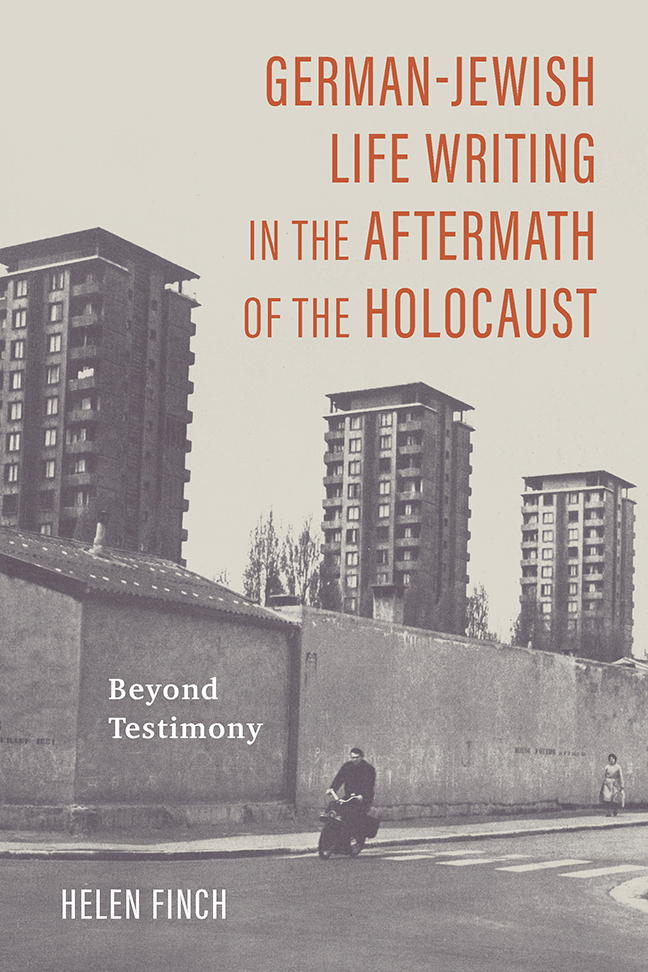Book contents
- Frontmatter
- Dedication
- Contents
- Acknowledgments
- List of Abbreviations
- Introduction
- 1 Modernist Marginalization in Exile: H. G. Adler in the 1950s and 1960s
- 2 Solidarity and Trauma between Austria and the GDR: Fred Wander from the 1960s to 2006
- 3 Transnational Transgression: Edgar Hilsenrath from 1980 to 2018
- 4 Feminist Rage: Ruth Klüger in the New Millennium
- Conclusion
- Bibliography
- Index
Introduction
Published online by Cambridge University Press: 10 January 2024
- Frontmatter
- Dedication
- Contents
- Acknowledgments
- List of Abbreviations
- Introduction
- 1 Modernist Marginalization in Exile: H. G. Adler in the 1950s and 1960s
- 2 Solidarity and Trauma between Austria and the GDR: Fred Wander from the 1960s to 2006
- 3 Transnational Transgression: Edgar Hilsenrath from 1980 to 2018
- 4 Feminist Rage: Ruth Klüger in the New Millennium
- Conclusion
- Bibliography
- Index
Summary
The success of the German and Austrian projects of Vergangenheitsbewältigung (coming to terms with the past) has always been subject to questioning. In the English-language media, historians seeking a way to confront unacknowledged crimes of the British empire, or to engage with Civil War memorials of Confederate generals in the US, have recently turned to Germany as a model of successful engagement with a difficult past. At the same time, critique from within Germany and Austria, as well as the German studies academic community, has become louder. Doubt about the genuine success of Vergangenheitsbewältigung has been compounded by revelations about far-right violence and the complicity of German and Austrian state structures in facilitating farright organizations. Among these can be considered the rise of the farright Freiheitliche Partei Osterreichs (FPO, Freedom Party of Austria) in Austria in the 1990s, German police liability in failing to stop the terrorist murders of the National Socialist Underground in the 2000s, the rise of the extreme far-right party Alternative für Deutschland (AfD, Alternative for Germany) in the 2010s, and the regular murders perpetrated by farright terrorists throughout the lifetime of the Federal Republic, such as the murder of CDU politician Walter Lubcke in 2019, or the massacre of eleven people in Hanau in 2020.
Mary Fulbrook, in her recent study Reckonings, has pointed out that a failure to hold those accountable for crimes against humanity during the Nazi period lies at the root of the ongoing crisis of Vergangenheitsbewältigung. Possibly because of this failure, German Vergangenheitsbewältigung has been as much a cultural and literary project as it has been a financial and political one. Fulbrook contends that although “cultural representations, political uses, and public controversies have received a great deal of attention in historical accounts of ‘coming to terms with the past,’” the psychological implications of this past for individuals and their families have found less attention. It should be added here that this cultural project has also more often focused on the culture and politics of the German successor nations than on that of the victims. Hence the Jewish writer Max Czollek has recently excoriated the process of Vergangenheitsbewältigung as a German Gedächtnistheater (theater of memory), in which Jews have been required performatively to absolve Germans of their guilt by their presence and cultural participation in the Federal Republic and in the GDR.
- Type
- Chapter
- Information
- German-Jewish Life Writing in the Aftermath of the HolocaustBeyond Testimony, pp. 1 - 25Publisher: Boydell & BrewerPrint publication year: 2023

